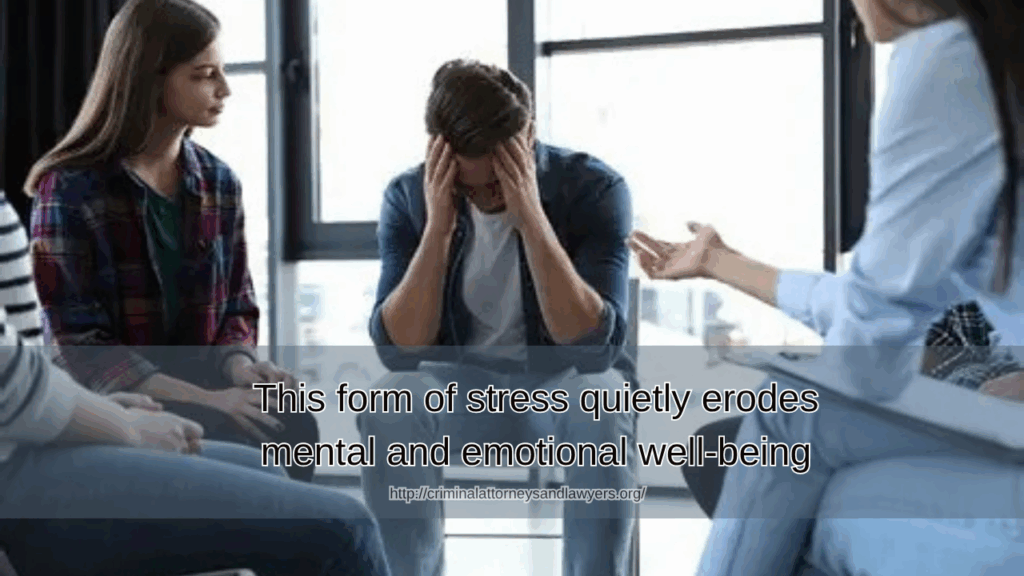
Elite attorneys are known for their dedication, empathy, and commitment to clients. Yet this very compassion can become a hidden burden. Over time, the constant emotional investment required to advocate for clients facing trauma, addiction, or criminal charges can lead to compassion fatigue. This form of stress quietly erodes mental and emotional well-being, often without outward warning. At CriminalAttorneysAndLawyers.org we understand how compassion fatigue can mirror the challenges faced by individuals struggling with addiction, and why holistic, individualized care is essential for attorneys to sustain both their professional performance and personal health.
Understanding Compassion Fatigue in Legal Professionals
What Is Compassion Fatigue?
Compassion fatigue occurs when prolonged exposure to clients’ suffering leads to emotional exhaustion. Attorneys in criminal law often witness intense human struggles, from abuse and addiction to family disruption and loss. The accumulation of these experiences can overwhelm even the most resilient professionals, leaving them emotionally drained and detached.
Recognizing the Signs
Key indicators of compassion fatigue include:
- Persistent fatigue and burnout
- Emotional numbness or reduced empathy
- Irritability or heightened sensitivity
- Difficulty concentrating or making decisions
- Increased reliance on substances or unhealthy coping mechanisms
Recognizing these symptoms early is critical for preventing deeper mental health challenges.
The Link Between Compassion Fatigue and Addiction
Unhealthy Coping Strategies
Much like clients struggling with addiction, attorneys may seek quick relief from emotional strain. Alcohol, stimulants, or prescription medications may temporarily alleviate stress but often exacerbate underlying fatigue. Without intervention, these coping mechanisms can develop into dependency, echoing the cycles seen in addiction recovery.
The Cycle of Emotional Exhaustion
Compassion fatigue reinforces a vicious cycle: the more one invests emotionally without proper support, the greater the strain on mental health. This can reduce effectiveness, impair judgment, and increase vulnerability to both professional and personal challenges.
Holistic Approaches to Healing
At CriminalAttorneysAndLawyers.org we emphasize comprehensive care that addresses mind, body, and spirit, offering valuable lessons for attorneys navigating compassion fatigue.
Individualized Support
No two cases or attorneys are the same. Tailored programs help professionals develop coping strategies suited to their unique experiences, whether through therapy, peer support, or wellness planning.
Inpatient and Outpatient Care
Structured programs provide opportunities to step back from the pressures of work. Inpatient care allows for immersive focus on recovery and stress management, while outpatient programs enable professionals to integrate healing into daily life.
Faith-Based and Holistic Practices
Incorporating faith, mindfulness, physical wellness, and nutrition restores balance and resilience. These tools support attorneys in managing emotional exposure without sacrificing their health or effectiveness.
Practical Strategies for Managing Compassion Fatigue
Establish Boundaries
Setting emotional and professional boundaries protects against overextension and preserves energy for both work and personal life.
Prioritize Self-Care
Regular mental health check-ins, exercise, mindfulness, and hobbies provide essential recovery time.
Seek Support Early
Confidential counseling or structured recovery programs can prevent the progression of compassion fatigue and strengthen long-term resilience.
Conclusion
Caring deeply for clients is a hallmark of elite attorneys, but unchecked compassion can quietly erode well-being. Like addiction, compassion fatigue requires recognition, intervention, and holistic support to restore balance.
At CriminalAttorneysAndLawyers.org we provide compassionate, faith-based, and individualized care that empowers professionals to manage emotional strain, reduce stress, and maintain both health and professional excellence. If you or someone you know is experiencing emotional fatigue, stress, or unhealthy coping, reach out today. Healing begins with the first step, and support is available.

